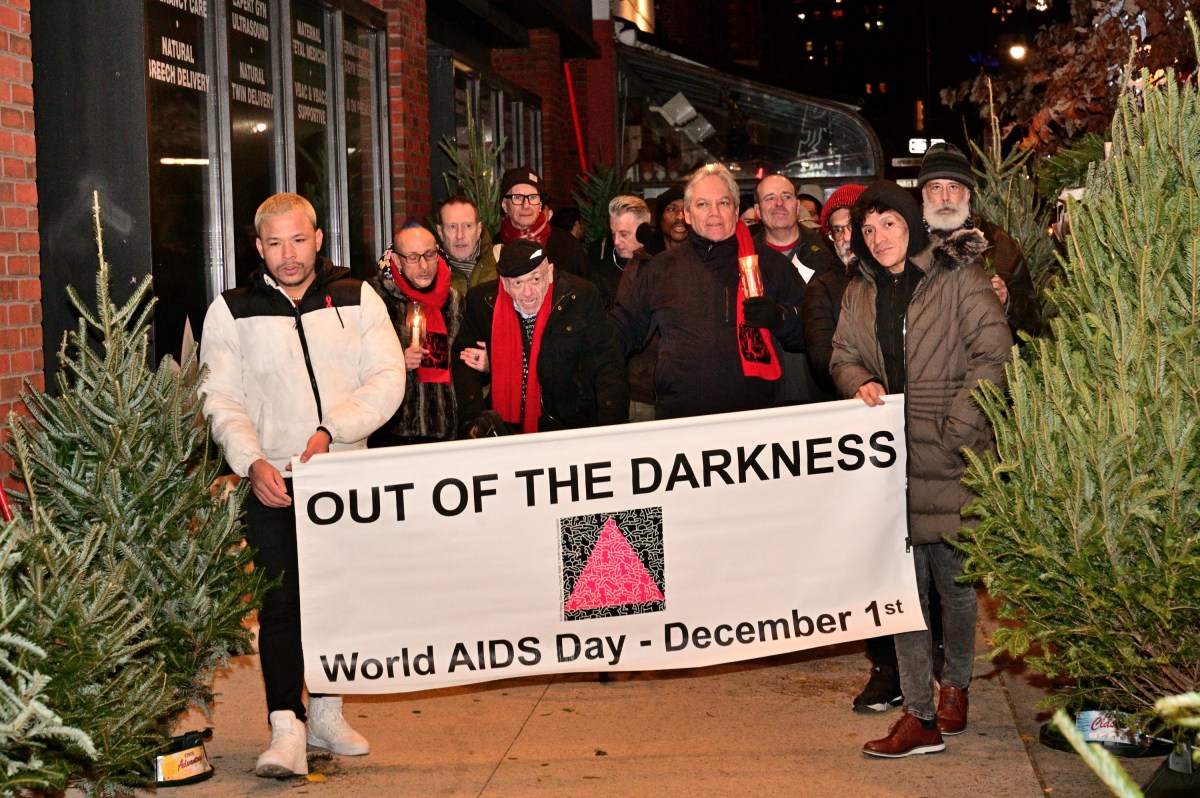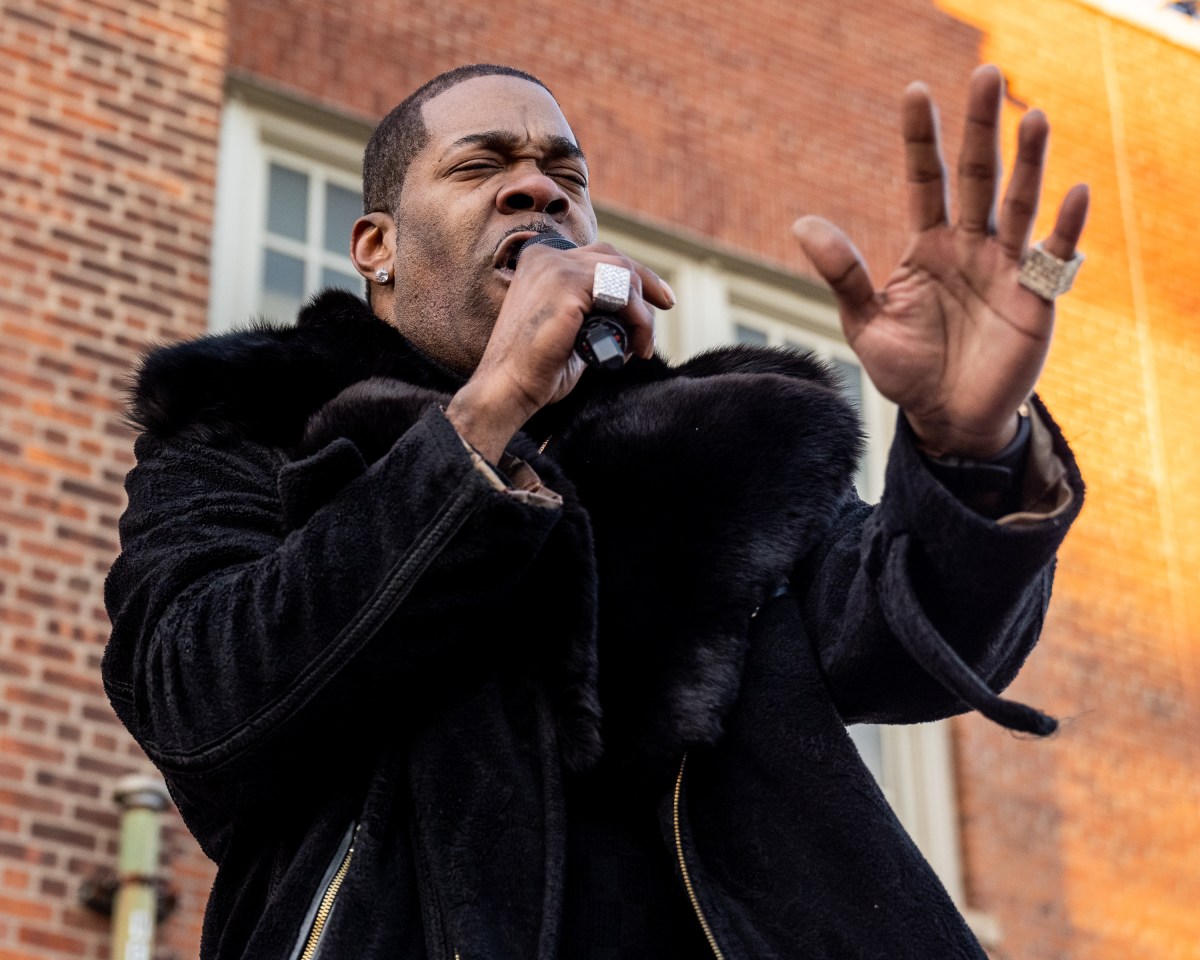Dozens gathered in Abe Lebewohl Park for a rally and march on Saturday to celebrate the New York Department of Health’s (DOH) decision to halt the closure of Mount Sinai Beth Israel (MSBI) on Manhattan’s Lower East Side — at least for now.
Activists also called on Mount Sinai Health System Officials to negotiate about restoring services at both Beth Israel Medical Center and the New York Eye & Ear Infirmary.
Last September, without approval from state officials, Mount Sinai announced it would shut the doors of the teaching hospital with a proposed closure date of July 12, 2024, claiming substantial financial losses to the tune of more than $100 million a year and chronic underutilization. On April 2, the DOH rejected the closure plans, stating that the plan was “incomplete” and calling on MSBI to resubmit a more detailed plan.
At the rally, Mark Hannay, director of Metro New York Health Care for All, lauded the DOH’s rejection and court rulings. However, he also said that the community still had their work cut out to keep open Beth Israel, the only remaining community hospital in the Lower East Side, serving over 300,000+ residents.
“The third victory we got is that we [now have] a seat at the table as a community,” Hannay said. “The court ordered that Mount Sinai sit down with our elected officials, and with the Department of Health, and with community organizations and representatives to negotiate a restoration plan of services and then to take the next step to think about what is the future of both Beth Israel and New York Eye & Ear [Infirmary] going to be here in lower Manhattan. So we’ve got a lot of work ahead of us.”
Activists accuse Mount Sinai of systemically cutting down services at Beth Israel and Eye & Ear Infirmary.
Alongside state Senator Kristen Gonzalez, the group of about 50 activists, carrying banners and signs, marched to Beth Israel on 1st Avenue and East 16th Street, with a pit stop at Eye & Ear Infirmary, at the corner of 2nd Avenue and East 14th Street.

In recent years, Mount Sinai has canceled many services at Eye & Ear, including the only eye trauma program in the tri-state area and the infirmary’s on-site radiology and laboratory services. Healthcare activists fear that the cutbacks are another move by Mount Sinai to claim underutilization of the over 200-year-old institution, leading to its permanent closure.
amNewYork Metro reached out to Mount Sinai for comment, and is awaiting a response.
Dr. David Della Rocca, an oculoplastic and orbital surgeon, pointed out that Eye & Ear had trained countless physicians to serve the community.
“We have to have [Eye & Ear Infirmary] as a center for a resource for everyone to be able to say, ‘We know where to go when we need eye care and care for ourselves,” Della Rocca said. “This is a place that needs to exist.”
At the rally across from Beth Israel, activists pointed out that Beth Israel treated 75,000 patients in its emergency room last year. If the hospital closed, that number would have to be absorbed by Bellevue Hospital and NYU Langone, whose ERs already serve 60,000 patients a year with an average waiting time of more than three hours.
State Senator Kristen Gonzalez acknowledged that the fight to keep Beth Israel open and restore its services wasn’t over but pointed out that it was the “first time in a long time” that the DOH sided with the community and politicians. Gonzalez reported that the State Senate was fighting for New Yorkers and introduced several bills, including a moratorium on all hospital closures.
“The second bill is a moratorium on all hospital closures until the Department of Health does the due diligence of collecting data to tell us what the impact, whether it’s downstate with Mount Sinai or SUNY or upstate with Nassau County, on the most vulnerable New Yorkers,” Gonzalez said. “Because this is life and death for us.”


Arthur Schwartz, president and founder of Advocates for Justice, reported receiving a phone call early Friday morning from nurses from the catheterization unit who told him that not a single stent was implanted because the ICU wasn’t staffed.
“The nurses had left. The doctors had left. And that’s despite the fact that the health department turned down their plan and the judge signed an injunction that said they should use best efforts to restore services,” Schwartz said.
In response, Schwartz filed to convene a contempt hearing on April 12.
“[Mount Sinai] is not using best efforts. They are continuing their arrogant anti-legal efforts to close this hospital,” Schwartz declared. “They are continuing to do it, and we have to keep our voices loud.”
Donna Ellaby, outgoing president of Communication Workers of America, Local 1183, told amNewYork that she’s been fighting to ensure that public sector employees have quality health care and health insurance.
“However, with the closing of hospitals, both in Brooklyn and now Beth Israel, having good health insurance means nothing if when you have an urgent need for medical care, you don’t have a community hospital you can turn to,” Ellaby explained.
The Lower East Side resident shared that in 2022, she experienced severe breathing issues.
“I got in a cab and went eight blocks to Beth Israel,” Ellaby said. “They admitted me for observation for three days and gave me oxygen because I was very low on oxygen. I don’t know if I had to go anywhere else and travel for 15 to 20 minutes where I would be now.”
Read more: Major NYPD-Protester Clash in Midtown



































